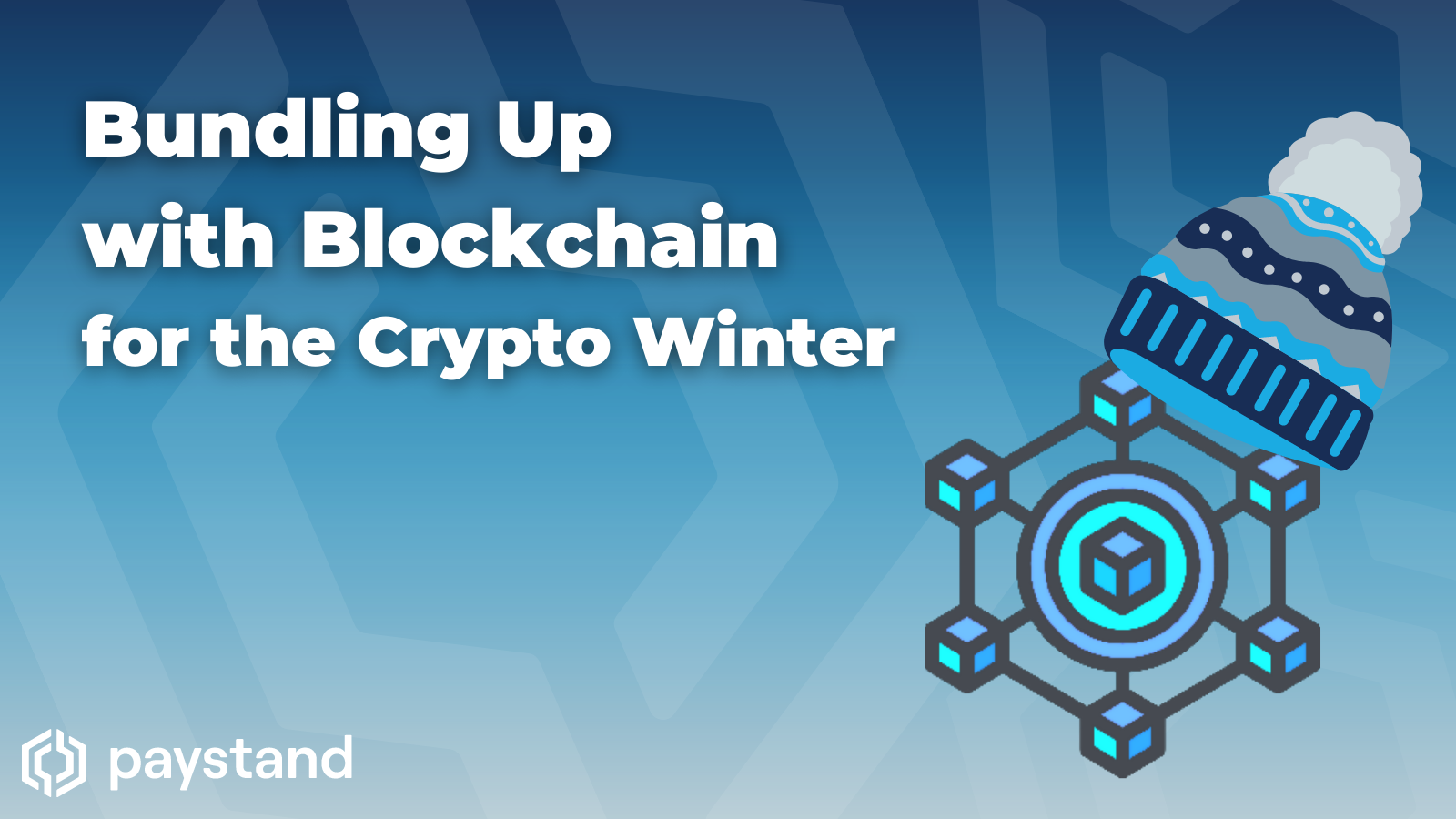Bundling up with Blockchain for the Crypto Winter

Amid the crypto downturn, SEC threats, and about a 75% drop in BTC value since November 2021, many are painting everything related to crypto with the same brush. Besides plummeting crypto exchanges, NFT-based art values are plunging, and even DeFi has been called into question.
Yet we have to refrain from throwing the blockchain baby out with the crypto bathwater. While the crypto market is struggling temporarily, DeFi and the blockchain are positioned to offer our economy a significant boost by reducing our reliance on an antiquated and expensive jumble of legacy payment systems.
The difference between Blockchain and Crypto
Blockchain is the underlying technology and isn’t dependent on crypto.
Think of crypto as an application that sits on top of the blockchain, like a train on a track — the tracks are fine, but traffic is a bit slow right now. We’re building a better infrastructure so that when the traffic comes pouring in again, the infrastructure is ready to handle it. We need to strengthen the blockchain to boost crypto, proving that blockchain and crypto are secure, sturdy, and here to stay.
The blockchain-based financial system is rapidly expanding, offering unprecedented speed and security. Its decentralized and transparent nature democratizes money movement and allows greater financial control—it's instant, secure, global, and inclusive.
In terms of use cases, blockchain is running circles around crypto right now. While cryptocurrencies tend to dominate the headlines, blockchains are quietly solving problems including payments, identity and reputation, trade finance, banking, supply chain, manufacturing, logistics, pharmaceuticals, waste management, and law enforcement. Additionally, 81 of the top 100 companies are finding ways to use blockchain technology — including Microsoft, PayPal, and Disney. And we can expect to see that number increase as the technology matures and is proven in the market to be a better experience and better value.
How can businesses benefit from the blockchain?
Put simply, blockchain is information-tracking technology. An enterprise blockchain is essentially a shared ledger that can’t be altered in any way and facilitates the process of recording transactions and tracking assets in a business network. For example, at Paystand, we use it to make our customers’ payment history secure, digitally auditable, and free of tampering.
Imagine a world where business agreements are executed automatically by digital smart contracts, where the contract and terms are tied together by mathematical rules. It’s already possible and happening today. That’s the blockchain.
Blockchain is changing the financial industry for the better by establishing a decentralized ledger for payments, offering faster transactions and lower fees than banks on an international scale — with no global governing body, an immutable ledger, and fully transparent & searchable transactions.
While traditional payment methods are insecure and at high risk for fraud, blockchain offers a secure, end-to-end, immutable transaction record to protect your payments. It’s no secret that traditional payment methods are painfully slow, and manually reconciling a single transaction can take days — especially if you have to wait for the bank to approve the transaction.
In contrast, the blockchain reconciles payments almost instantaneously, without manual effort. One of the essential functions of blockchain is that it removes the need for middlemen to verify transactions. That’s all code now. And that code is the same for everyone, period. If you have access to the internet, you can transact on the blockchain without anyone’s permission.
Opportunities for growth in a bear market
The crypto fallout has been caused by a Wild West atmosphere characterized by unbridled growth with few guardrails, where an unregulated atmosphere still prevails. Blockchain companies are at a distinct advantage to pull ahead in the market and prove the sturdiness and value of the technology. Blockchain technology enables faster digital payment systems, resulting in savings for businesses, reduced DSO, and increased ROI.
But the blockchain-based financial system, as an underlying operating system, is solid, rapidly expanding, and offering unprecedented speed and security. It provides a new digital economic infrastructure that can streamline the payment process, enable instant payment, cut out the middlemen through peer-to-peer transactions, and reduce costs.
The dot com era shake-out led to a universal shift in the production and consumption of information, and winning companies emerged over time. Likewise, blockchain companies will weather this current crypto storm as they transform every aspect of how we do business, including the realm of B2B payments.
Ultimately, companies must figure out alternative ways of managing and doing business. Now is a great time to put heads together and figure out how to power through, leading to a stronger business model. The companies that put in the effort are more likely to succeed after this shake-out.




